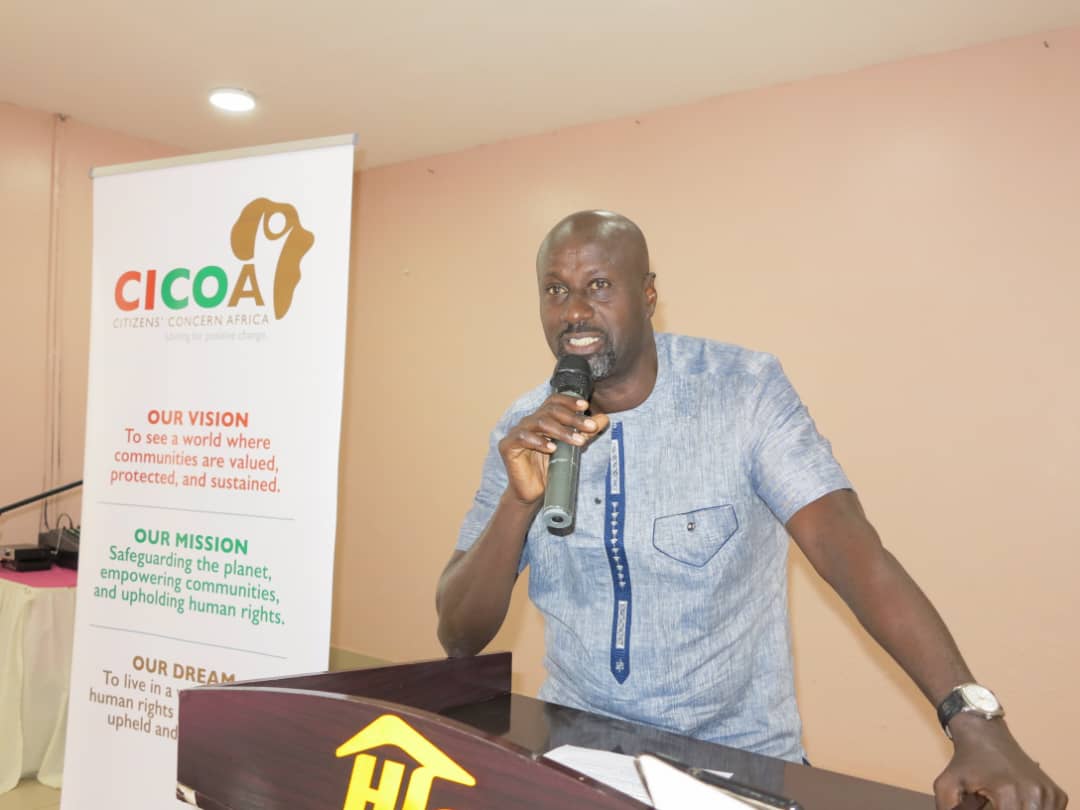Advocate for Human Rights as You Work, Journalists Urged

The Executive Director of the National Coalition of Human Rights Defenders, Robert Kirenga, has called on journalists to integrate human rights advocacy into their work by remaining impartial and factual.
Speaking to journalists from the Bunyoro sub-region, mainly from the districts of Hoima and Kikuube, Kirenga delivered the message during a workshop held at Hotel Kontiki in Hoima City.
The session, organized by Citizens Concern Africa, ran under the theme, “Reporting on Human Rights and the Impact of Oil Projects on Local Communities.”
The workshop emphasized the critical role of journalism in promoting accountability, maintaining media integrity, and countering misinformation in reporting—especially around the oil and gas sector.
Kirenga also stressed the importance of journalist safety, urging media practitioners to be aware of the risks they face while covering sensitive issues, including violence, intimidation, and harassment.
“There should be clear safety protocols to protect journalists—especially when operating in conflict zones, high-risk areas, and during political rallies and demonstrations,” said Kirenga, whose umbrella organization is dedicated to the promotion and protection of human rights and human rights defenders.
“There is no story worth your life. It doesn’t make sense to die while trying to get a story,” he added, citing violent incidents during the Kawempe North by-election as an example.
He underscored that human rights are central to journalism, enabling reporters to carry out their duties freely and securely. However, this freedom is increasingly under threat due to censorship, surveillance, repression, and violence.
“In many parts of the world, journalists are subjected to illegal surveillance and monitoring, compromising their ability to report truthfully. Attacks on journalists often go unpunished, creating a culture of impunity and emboldening perpetrators,” Kirenga warned.
The call to action comes at a time when Uganda’s media landscape is under scrutiny for its coverage of resource extraction projects and the broader human rights implications on local communities.
Kirenga encouraged continued capacity building and legal protections for journalists to ensure that the truth is not only told but told safely.
The workshop emphasized the critical role of journalism in promoting accountability, maintaining media integrity, and countering misinformation in reporting—especially around the oil and gas sector.



0 Comments